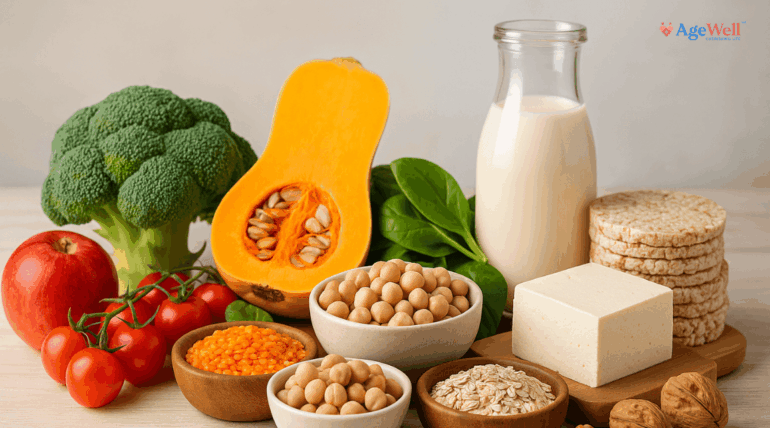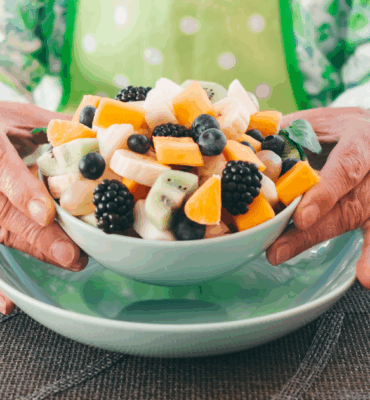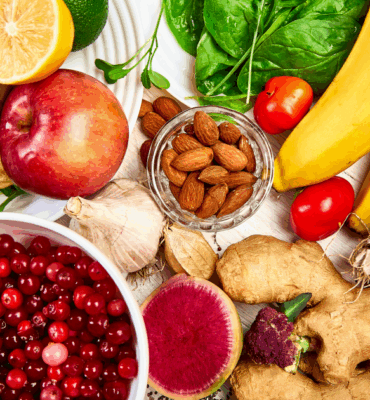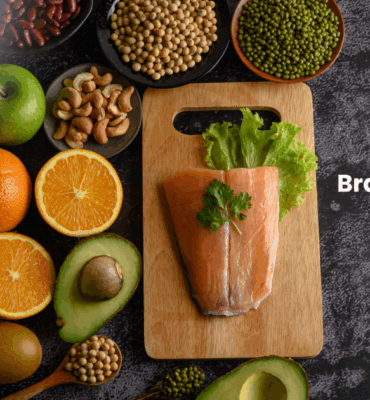
As we age, our bodies require more mindful nourishment. For many seniors, dietary shifts toward vegetarian, vegan, or gluten-free lifestyles. They aren’t just preferences—they’re essential for managing health conditions and improving overall well-being. These diets can support better digestion, boost immunity, and reduce the risk of chronic illness.
In this guide, we explore how special diets can positively impact senior health and diet. From understanding nutritional needs to offering tailored tips for senior meal planning, we’ll help you or your loved one navigate food choices that support healthy aging.
Why Do Seniors Need Special Diets?
As the body ages, nutritional demands change. Seniors often experience slower metabolism, reduced appetite, and difficulty absorbing certain nutrients — making it essential to choose meals that are easy to digest yet packed with essential vitamins and minerals. Additionally, chronic conditions like high blood pressure, diabetes, arthritis, and osteoporosis require more thoughtful meal planning.
Incorporating special diets such as vegetarian, vegan, or gluten-free isn’t just about restriction — it’s about enhancing quality of life. A well-planned diet can help manage weight, reduce inflammation, and support cognitive and heart health. For example, some seniors may benefit from a gluten-free diet to alleviate digestive discomfort, while others may prefer plant-based eating to improve energy and immunity.
Proper senior meal planning ensures not just balanced nutrition but also meals that are enjoyable and easier to prepare or consume — especially for those with dental issues or limited mobility.
What Is a Balanced Vegetarian Diet for Seniors?
A vegetarian diet can be highly beneficial for seniors when it’s well-planned and nutrient dense. It typically eliminates meat while including a variety of plant-based foods along with dairy and eggs (in lacto-ovo vegetarian diets). This diet supports heart health, reduces inflammation, and can help manage cholesterol levels — all important factors in senior health and diet.
However, aging adults must be careful to avoid common deficiencies in protein, vitamin B12, calcium, and iron. Smart senior meal planning can help meet these needs by incorporating the right ingredients.
Key Components of a Vegetarian Diet for Seniors
| Nutrient | Vegetarian Sources | Notes |
| Protein | Lentils, beans, paneer, eggs, Greek yogurt | Add at every meal |
| Calcium | Dairy products, tofu, sesame seeds | Essential for bone health |
| Iron | Leafy greens, legumes, fortified cereals | Pair with vitamin C foods |
| Vitamin B12 | Eggs, dairy, fortified foods | Consider supplementation |
| Fiber | Whole grains, fruits, vegetables | Supports digestion and heart health |
How Can Seniors Follow a Healthy Vegan Diet?
Adopting a vegan diet in later life can be both healthy and sustainable — but it requires careful planning to ensure proper nutrition. Here’s how seniors can follow a balanced, health-supportive vegan lifestyle:
Choose a variety of plant-based proteins
- Include tofu, lentils, beans, quinoa, and chickpeas
- Rotate protein sources to prevent taste fatigue and ensure amino acid variety
Incorporate healthy fats
- Add avocados, olive oil, nuts, and seeds
- Helps with vitamin absorption and brain health
Boost calcium intake without dairy
- Use fortified plant-based milks (almond, soy, oat)
- Include sesame seeds, broccoli, kale, and tofu set in calcium
Ensure enough vitamin B12 and D
- Take fortified foods or supplements, as these vitamins are rarely found in plant foods
- Vitamin D is especially important for bone health in aging adults
Support digestion with fiber-rich foods
- Emphasize whole grains, fruits, and vegetables
- Soften or cook foods to aid chewing and absorption
Stay hydrated and mindful of appetite
- Offer small, frequent meals if appetite is low
- Add herbal teas, soups, and smoothies to keep up fluid intake
Consider nutrition shakes or powders if needed
- These can help fill nutrient gaps or support weight maintenance
- Look for senior-specific formulas with added calcium, protein, and B12
Personalize meal planning
- Tailor foods to individual preferences, allergies, and medical needs
- Consult a dietician or wellness manager when transitioning to a new diet
What Are Gluten-Free Diet Needs for Older Adults?
Older adults may need to follow a gluten-free diet due to celiac disease, gluten sensitivity, or digestive discomfort. Here’s how to manage this dietary shift effectively:
Understand gluten sources
- Gluten is found in wheat, barley, and rye
- Avoid common products like breads, pastas, cereals, and baked goods unless labeled gluten-free
Focus on naturally gluten-free whole foods
- Include rice, quinoa, buckwheat, millet, and gluten-free oats
- These provide fiber, energy, and essential nutrients
Watch for nutritional gaps
- Many gluten-free processed foods lack iron, fiber, and B vitamins
- Compensate with legumes, leafy greens, and fortified gluten-free grains
Prevent cross-contamination
- Use separate utensils, cookware, and toasters at home
- Carefully read food labels and allergen statements
Support digestion with fiber-rich alternatives
- Add fruits, vegetables, and seeds to maintain regularity
- Consider psyllium husk or flaxseeds if fiber is still low
Stay mindful of packaged gluten-free products
- Some may be high in sugar or low in nutrients
- Prioritize whole food ingredients and home-cooked meals when possible
Consult a healthcare provider
- Especially important if the diet is related to a medical diagnosis
- Helps ensure long-term balance and comfort
What Nutrients Do Seniors Often Miss on These Diets?
Seniors following vegetarian, vegan, or gluten-free diets can easily miss out on essential nutrients if meals aren’t well-planned. Here’s a breakdown of common nutritional gaps and how to manage them:
Vitamin B12
- Often lacking in plant-based and gluten-free diets
- Supports nerve function and red blood cell production
- Found in fortified cereals, dairy, or supplements
Protein
- Crucial for muscle maintenance and healing
- Can be lower in plant-based diets if not varied
- Add legumes, tofu, dairy, eggs, or protein-enriched foods
Iron
- Needed for energy and oxygen transport
- Plant-based sources are less easily absorbed
- Combine iron-rich foods with vitamin C (e.g., spinach + lemon juice)
Calcium
- Vital for bone health and preventing fractures
- Can be low in dairy-free or vegan diets
- Include leafy greens, sesame, fortified plant milks
Vitamin D
- Supports immune and bone health
- Hard to get from food alone — consider supplements
- Sunlight exposure (15–20 mins daily) helps naturally
Omega-3 Fatty Acids
- Important for heart and brain health
- Typically low in vegan diets
- Add walnuts, flaxseeds, chia seeds, or algae-based supplements
Fiber
- Needed for digestion and preventing constipation
- Can be low in gluten-free processed foods
- Prioritize fruits, vegetables, whole grains, and legumes
Tips to Create Easy and Nutritious Meals for Seniors
Preparing healthy meals for older adults doesn’t need to be complicated. Here are practical tips to make meal planning easier and more beneficial:
Plan meals around soft, easy-to-chew foods
- Try soups, stews, mashed vegetables, porridge, or smoothies
- Helps those with dental issues or reduced appetite
Cook in batches and freeze portions
- Reduces daily cooking time and encourages consistency in nutrition
Add color and variety to every plate
- Use different vegetables, herbs, and grains for visual and nutritional appeal
Include protein in every meal
- Rotate between legumes, tofu, eggs, or dairy to support muscle health
Use herbs and spices to boost flavor
- Reduces the need for extra salt and keeps meals interesting
Offer small, frequent meals
- Ideal for seniors who feel full quickly or have lower energy levels
Incorporate healthy snacks
- Nuts, roasted seeds, yogurt, and fruit slices help meet daily calorie needs
Use senior-friendly kitchen tools
- Lightweight pots, wide-handled utensils, or electric choppers ease the cooking process
Stay mindful of hydration
- Serve soups, herbal teas, and fruits with high water content to support fluid intake
When Should You Consult a Dietician or Geriatric Nutritionist?
While special diets can support senior health, it’s important to know when professional guidance is needed. A geriatric nutritionist or dietician can help tailor meal plans, manage deficiencies, and address age-related health concerns safely.
Here are common situations when a consultation is strongly recommended:
Unexplained weight loss or poor appetite
- May signal nutrient deficiencies or underlying health issues
Difficulty managing chronic conditions through diet
- Conditions like diabetes, high blood pressure, or kidney disease often require medical nutritional therapy
Transitioning to a new dietary lifestyle
- Going vegetarian, vegan, or gluten-free can introduce gaps that a professional can help fill appropriately
Concerns about malnutrition or low energy
- A dietician can create balanced plans that restore energy and support healthy aging
Digestive discomfort, bloating, or food intolerances
- They can identify triggers and recommend senior-friendly alternatives
Multiple dietary restrictions at once
- For example, combining diabetic needs with a gluten-free or vegan lifestyle requires expert planning
Post-hospital recovery or rehabilitation
- Nutritional support plays a key role in regaining strength and preventing complications
Caregiver support or family planning
- Caregivers may benefit from professional advice on cooking, meal timing, and supplementation
Frequently Asked Questions (FAQs)
Q1: Can seniors get enough protein on a vegan or vegetarian diet?
Yes, with proper planning. Seniors can meet their protein needs through plant-based sources such as lentils, tofu, beans, quinoa, dairy products (for vegetarians), and fortified protein powders. Including protein in each meal is important for maintaining muscle mass and strength.
Q2: Is a gluten-free diet safe for seniors without celiac disease?
While a gluten-free diet is essential for those with celiac disease or gluten sensitivity, it’s not automatically healthier for everyone. Seniors without a medical need should consult a dietician before making the switch, as unnecessary gluten avoidance can lead to fiber or B-vitamin deficiencies.
Q3: What are easy vegan meals that seniors can prepare at home?
Some easy options include vegetable soups, chickpea salad, tofu stir-fry, lentil curry with rice, and overnight oats with seeds and berries. These meals are soft, easy to digest, and can be cooked in batches for convenience.
Q4: Do seniors need to take supplements on a vegan or gluten-free diet?
Often, yes. Common supplements include Vitamin B12, Vitamin D, calcium, and omega-3 (plant-based DHA/EPA). These ensure that seniors meet their nutritional needs even when certain food groups are limited or excluded.
Q5: How do I plan meals if my elderly parent has more than one dietary restriction?
In such cases, personalized senior meal planning is essential. A registered dietician can help balance all requirements — such as combining diabetic-friendly, gluten-free, and plant-based elements — into safe, enjoyable meal plans.
Final Thoughts on Choosing the Right Special Diet for Seniors
Choosing the right diet for an aging loved one is about more than just food — it’s about dignity, comfort, and proactive care. Whether it’s vegetarian, vegan, or gluten-free, the goal is to ensure meals are nourishing, safe, and enjoyable.
But we understand it’s not always easy to navigate dietary restrictions, health conditions, and changing appetites — especially when you’re caring for someone you love.
That’s where AgeWell comes in.
At AgeWell, we don’t just support meal planning — we support your entire journey of elder care. Our wellness managers, home caregivers, and trained attendants work closely with families to craft personalized nutrition and wellness plans that meet both medical needs and emotional comfort. Whether you need help with cooking, supplementation, or ongoing dietary supervision, we’re here for you.

Sajan Sharma writes for AgeWell, sharing insights and stories that promote compassionate and reliable eldercare for seniors and their families.





